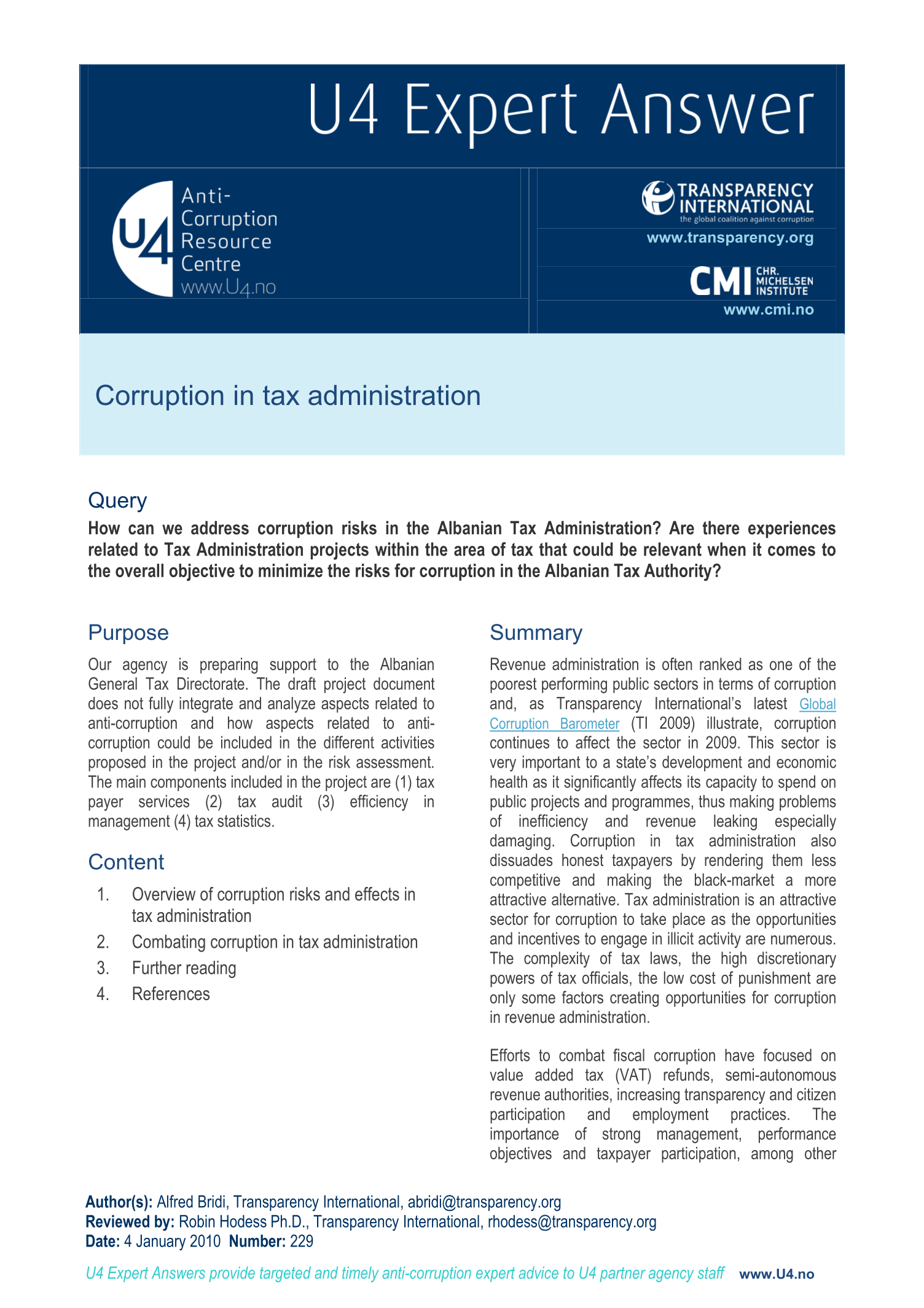U4 Helpdesk Answer
Corruption in tax administration
Revenue administration is often ranked as one of the poorest performing public sectors in terms of corruption. Tax administration is an attractive sector for corruption to take place as the opportunities and incentives to engage in illicit activity are numerous. The complexity of tax laws, the high discretionary powers of tax officials, the low cost of punishment are only a few of the factors which create opportunities for corruption in revenue administration. The effects of fiscal corruption are widespread as large amounts of a nation’s taxable revenues are unaccounted for, voluntary compliance with tax laws and regulations is reduced and the distributive function of tax collecting is itself undermined. Efforts to combat fiscal corruption have focused on value added tax (VAT) refunds, semi-autonomous revenue authorities, increasing transparency and citizen participation and employment practices. The importance of strong management, performance objectives and taxpayer participation, a

Cite this publication
Bridi, A. (2010) Corruption in tax administration. Bergen: U4 Anti-Corruption Resource Centre, Chr. Michelsen Institute (U4 Helpdesk Answer null)
Disclaimer
All views in this text are the author(s)’, and may differ from the U4 partner agencies’ policies.
This work is licenced under a Creative Commons Attribution-NonCommercial-NoDerivatives 4.0 International licence (CC BY-NC-ND 4.0)

